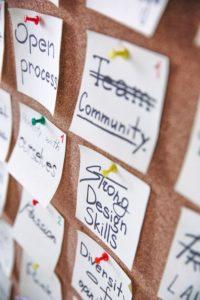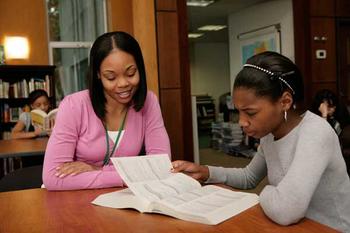by Shauna Rigaud, PhD Candidate in Cultural Studies

I’ve always understood that community sustains me. When I was a kid, I was involved in all the afterschool programs I could find. Not just because I knew my mom would not allow me to just hang out at my friends’ house or randomly go to the mall afterschool, but because I saw the unique opportunity those programs offered me to find friendship, give back and learn in untraditional ways. I didn’t always think that was the case (I really just wanted to hang out with my friends), but each opportunity that I became involved with helped to build my appreciation for community service.
I went from the Boys and Girls Club to afterschool programs. Throughout high school, every May, my friends and I would raise money and walk 20 miles for Project Bread’s annual Walk for Hunger in Boston. Yes, I said 20 miles. At the age of 14, I was appointed as a member of a youth board for an organization, Boston Do Something. I was charged with raising money and allotting grants to other young people who wanted to make Boston a “better more just place to live.” At the age of 15, I got my first summer job as a tour guide for a non-profit organization called MYTOWN, sharing the stories of underrepresented communities and activism in Boston. And at 16 years old, I participated in my first protest for affordable housing. When I got to college, I volunteered in an afterschool program at the town’s middle school and even started a mentoring group for girls of color at the local high school. These experiences helped to not only shape who I am but gave me critical skills that I take with me today.
Deciding to get a masters’ degree and then a PhD didn’t change the way that I saw community engagement and service connected to my career and what I did on my own time. In fact, it might have further solidified it. In this new role as now a researcher and scholar, I see community as inexplicably tied to our work as graduate students. I know, I know, as graduate students we are so focused on cranking out the next paper or getting through the next 100 pages of some theoretical text. In fact, it’s part of what we understand as up-and-coming academics: “publish or perish.” We should only be focused on scholarship; service is not important. But, while writing and reading are significant parts of our work and professional development as future educators, scholars, and practitioners, it’s important to remember that co-curricular opportunities like community service and community engagement are awesome ways to fellowship and build community with other graduate students (and undergrads), while also building your CV or resumé, developing new skills and strengthening old ones, and building relationships with others in your field and in communities that are important to you.
As graduate students, we have to think about community service and community engagement in a different way and in a way that allows us to elevate our experiences because of our focus on the next level of our careers. I’m going to name three reasons here: Leadership, Learning and Lessons. Because it sounds catchy, but also because these three themes really pinpoint how community service can benefit graduate students.
Leadership

A few weeks ago, a faculty member reminded me that “service is leadership.” And while we were discussing the ways that the powers-to-be for many universities often diminish service when considering tenure, the reminder struck me. As graduate students, community service offers an important opportunity to develop skills that prepare us to be true leaders in the field. Through community service opportunities, graduate students are doing advocacy, organizing, working with diverse populations, problem solving, managing projects, and developing innovations their fields. In choosing their service and being intentional about their engagement, this kind of leadership development is so valuable because graduate students can marry their passions with their projects. They become stronger students, and that translates into stronger scholars.
Learning
We’ve always known that students learn in a variety of different ways. Community service and engagement offers another way to apply knowledge and skills to practical everyday opportunities, a type of kinesthetic learning, where you can touch, feel, and play in new and developing skills. Students taking marketing classes can apply their skills to creating branding materials for non-profit organizations. History PhD students can work with cities and towns to develop oral history projects. MBA students can help create 5-year growth plans for small businesses. Opportunities for service are endless when we think about the ways we can align our work with real needs of the community. Students can build real-life experiences and learn to hone skills that they may not find in their jobs, but rather through community service that gives them an opportunity to learn new things.
Lessons
As future scholars, the lessons we develop by engaging in community service allows us to build relationships with communities where our research and interests are most focused. Through service opportunities we are able to apply theory to praxis. We can learn best practices by listening to and working with communities. Those experiences can allow graduate students to see community members as experts, creating a real paradigm shift in thinking about how we solve problems and develop equitable spaces for knowledge production.
As you try to navigate ways to include community service in your life as a graduate student, remember to think about the work that you are doing, either in class or in your research, that can be reinforced by community service and engagement. Mason has some great resources to help:
1. As graduate students, we also pay activity fees so why not start a student club with other graduate students on an interest, field, or research need. (https://si.gmu.edu/rso/)
2. Are you teaching a course? Think about including a service-learning component.
3. Maybe you just want to carve a few hours out of your month? Find volunteer opportunities in the community. (https://www.volunteerfairfax.org/)
4. Doing research? Develop a course that includes your field research and service.
5. Alternative Break isn’t just for undergrads! Participate in Alternative Break as a Trip Leader and mentor and support undergrads.
